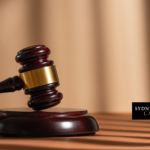Mounting Corruption Likely the End for the NSW Coalition Government

Former NSW deputy premier John Barilaro called in sick on Friday, prior to his scheduled appearance before the NSW Legislative Council Public Accountability Committee.
The ex-NSW Nationals leader cited mental health as the reason why he couldn’t front up to the hearing that would have marked his second appearance at the inquiry, which is scrutinising his appointment to the role of senior trade and investment commissioner to the Americas.
The ex-Coalition minister – who’s been taking up way too many newspaper inches over the last 12 months – was set to be questioned over his recommendation that his then staffer and now partner Jennifer Lugsdin be hired for a position at Investment NSW.
Another controversy the committee’s itching to drill him over relates to the former NSW building commissioner’s resignation letter, as it raises concerns about pressure applied by Barilaro and another former minister in relation to a stop work order applied to a property development.
However, these escalating scandals are only the latest to have gripped the beleaguered NSW Liberal Nationals government over the last year, and with a state election looming next March, a constituency long made tired by ongoing tales of corruption will likely reflect this at the ballot.
As Berejiklian held the throne
Barilaro once quipped that his nickname was “Pork Barrel-aro”, implying that as a politician, he was in the habit of pork barrelling, which, in his case, meant handing out taxpayer money to fund projects in Coalition-held and marginal seats in an effort to buy the votes of local residents.
While this practice reeks of corruption, no criminal offence directly relates to it and therefore, it takes place in a political grey area.
Although legal experts consider it likely breaches ministerial codes of conduct, and there are calls to directly make it a crime.
Then NSW premier Gladys Berejiklian quit her position last October, as the NSW Independent Commission Against Corruption (ICAC) announced that it was investigating her over two grants she approved that were likely conflicts of interest. The outcome of this case is still pending.
The ICAC investigation was launched in the wake of the Public Accountability Committee having revealed that 95 percent of $252 million from the Stronger Communities Fund had been distributed to local governments in Coalition voting areas.
The committee inquiry found that Berejiklian had signed off on $141.8 million worth of these grants herself, while her deputy Barilaro had personally approved $61.3 million worth of, what he likes to call, “investments”.
Indeed, as the ship was going down, Barilaro resigned from parliament just days after his boss Berejiklian bailed.
Enter the Perrottet
Following Berejiklian’s resignation, Dominic Perrottet took over the top ministerial role. And it’s been under him that the controversy around Barilaro having been appointed to the New York trade commissioner position, a job he helped create, has spilled out into a series of related scandals.
Investment NSW had filled the NY trade position last August, following a recruitment process and prior to Barilaro’s resignation. However, the offer was rescinded a month later, it was then readvertised, and in June, it was announced that the ex-deputy premier had been appointed.
In a statement to the Public Accountability Committee, Barilaro’s former chief of staff Mark Connell recalled his then boss returning from a 2019 meeting with then treasurer Perrottet and then investment minister Stuart Ayres and bragging about his future appointment to the NY position.
Barilaro and Perrottet have since denied these claims. However, last week, Ayres stood down from his position as trade minister, after having been shown a draft inquiry report that suggested his repeated acts in support of Barilaro taking the New York job might have breached the conduct code.
And this week began with Perrottet denying allegations that he’d offered to create a lucrative London trade position for transport minister David Elliott. The premier said that while he had discussed post-parliament positions, he hadn’t promised anything.
Barrelling along
For Barilaro, the scandals keep mounting. On Friday, he was set to be quizzed over his role in helping to secure his then senior media advisor of two years Jennifer Lugsdin a similar position at Investment NSW in mid-2021, due to the fact that these days she’s his girlfriend.
The second controversial issue involved the July resignation letter of former NSW building commissioner David Chandler, which was cited in parliament on Wednesday after the NSW Labor opposition pushed for it to be released.
Chandler outlined that he’d received calls from former fair trade minister Eleni Petinos and Barilaro in relation to a stop work order he’d issued to Coronation Property Group over a residential development in Merrylands.
The ex-building chief claims he heard from Petinos soon after he imposed the order, and he was then called by Barilaro, who’d only recently been appointed to the board of Coronation.
The NSW premier has since disputed speculation that this was the real reason as to why he recently sacked Petinos. He outlined that the originally cited bullying allegations laid against her were what led to her departure.
From its inception
During his first appearance before the Public Accountability Committee on Monday, Barilaro initially refused to reveal who his third referee for the New York position was. However, after he conferred with the individual in question, Barilaro revealed it was former NSW premier Barry O’Farrell.
Now Australian high commissioner to India, O’Farrell was the premier, when the current NSW Liberal Nationals government took office in March 2011. And it was his resignation in April 2014 that marked the first major scandal the Coalition was rocked by.
O’Farrell resigned after he’d had a “massive memory fail” whilst testifying before the ICAC, as he denied ever receiving an undeclared $3,000 bottle of wine from Australian Water Holdings executive Nick Di Girolamo. However, a handwritten “thank you” note revealed otherwise.
Passed its used by date
The ongoing Liberal Nationals scandals do serve to keep the public titillated. However, the Australian consistency clearly asserted at the ballot box in May that it’s over the corruption of government, and it wants immediate action on pertinent issues such as climate.
And whilst NSW does have an integrity watchdog with sharpened teeth keeping an eye on government corruption, the NSW public would prefer that those it voted into office were progressing matters at hand rather than spending all their energy denying misconduct claims.
So, as the state goes to the polls next March, the heightening controversies that have been plaguing the state government are sure to be fresh in the minds of NSW voters, and with the national trend in turning away from the majors at the ballot, it’s likely the end is nigh for the Perrottet government.







